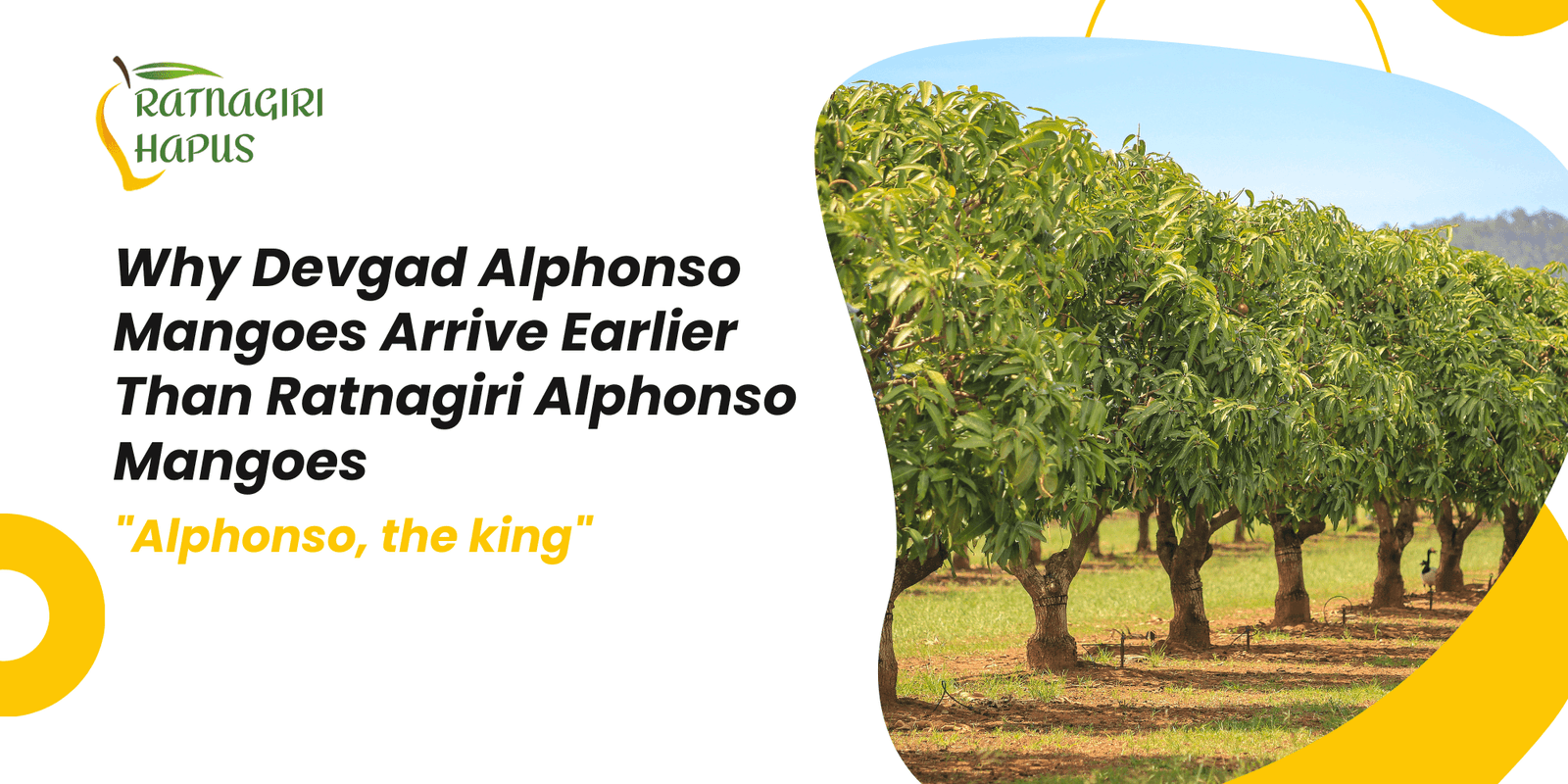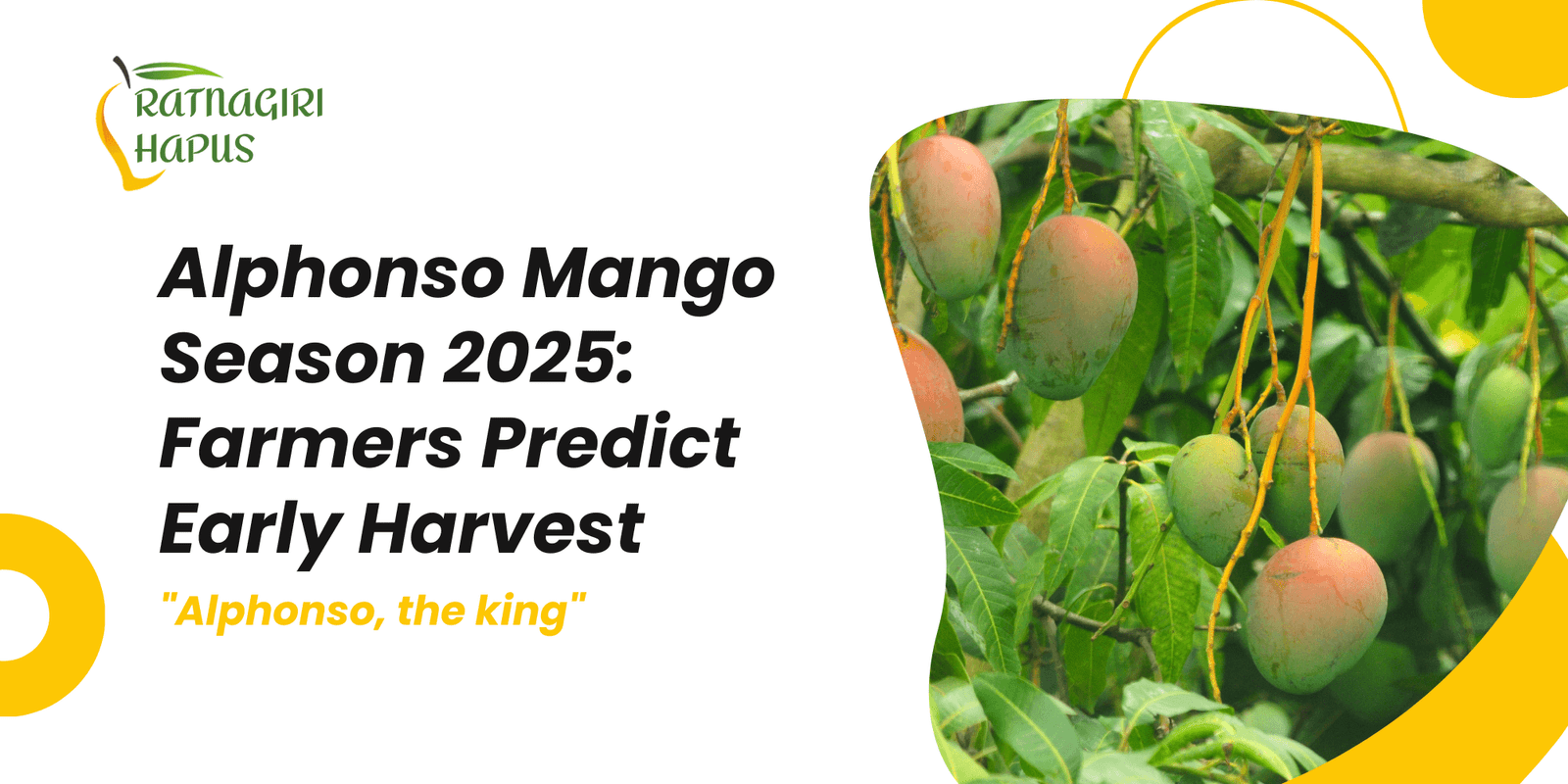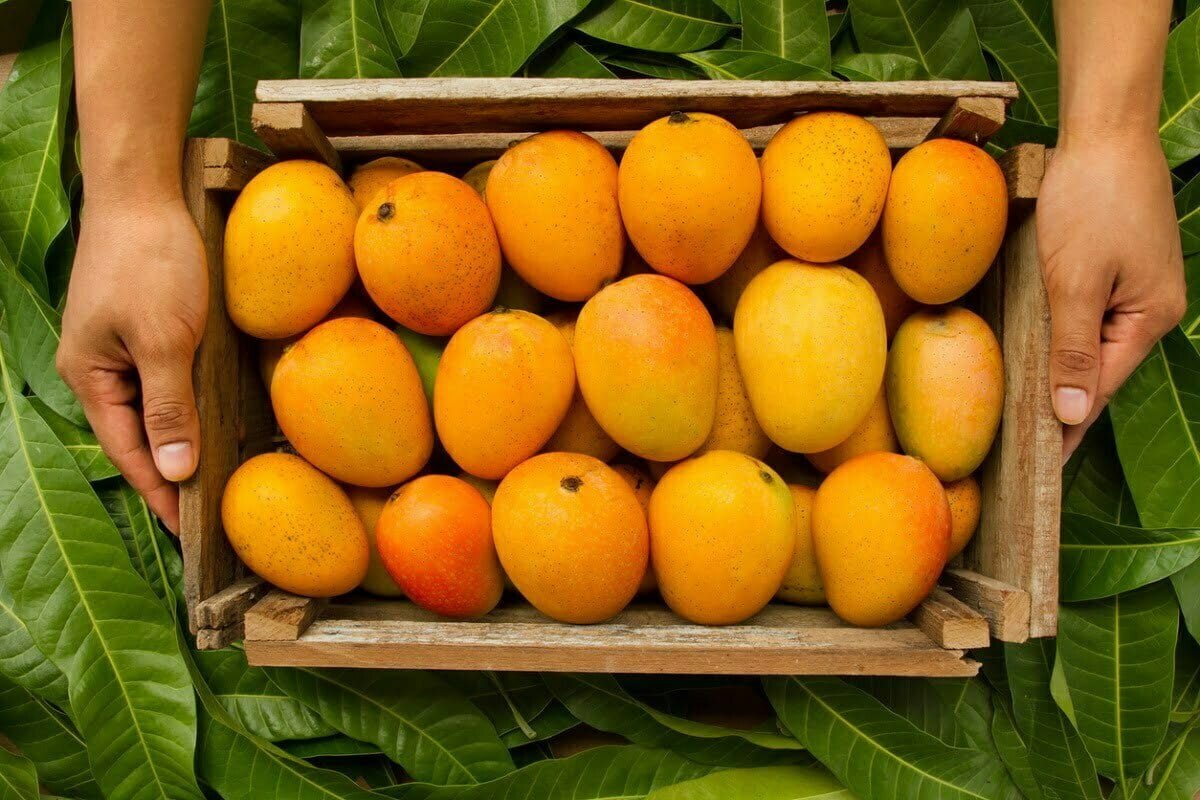Why Devgad Alphonso Mangoes Arrive Earlier Than Ratnagiri

The Alphonso mango, often regarded as the “king of fruits,” has two major strongholds in Maharashtra: Devgad and Ratnagiri. While both regions produce Alphonso mangoes of exceptional quality, mango lovers often notice that Devgad Alphonso mangoes reach the market earlier than those from Ratnagiri. This distinction is not coincidental; it results from a combination of geographical, climatic, and agricultural factors that set these two regions apart. Lets dive deep and know Why Devgad Alphonso Mangoes Arrive Earlier Than Ratnagiri Alphonso Mangoes.
Unique Geographical Advantage
Devgad’s geographical location plays a pivotal role in its early mango harvest. Situated at a higher altitude than Ratnagiri, Devgad benefits from slightly cooler nights and consistent sunny days during the critical flowering period. This stable climate promotes the early blooming of mango flowers (locally known as Mohar), which translates into an earlier harvest season.
In contrast, Ratnagiri’s proximity to the sea and dense vegetation causes higher humidity levels and slightly delayed flowering, pushing its mango harvest to late March or early April.
Why Devgad Alphonso Mangoes Arrive Earlier Than Ratnagiri
Distinct Soil Characteristics
Devgad’s laterite soil is one of its defining features. Known for its porosity and high mineral content, this soil provides optimal drainage and encourages faster root activity. These factors contribute significantly to the accelerated growth and ripening of mangoes. In Ratnagiri, the soil is more varied, often clayey in parts, which retains moisture and slows down the ripening process.
Microclimatic Conditions
The coastal microclimate of Devgad, influenced by the Arabian Sea, is more stable, with less fluctuation in temperature and humidity. This uniformity ensures that mangoes in the region mature earlier. Ratnagiri, on the other hand, experiences more variable weather conditions due to its extensive greenery and slightly higher rainfall during critical growth periods, leading to a later harvest.
Farming Practices and Expertise
Devgad farmers, known for their expertise in cultivating Alphonso mangoes, have fine-tuned their agricultural practices to ensure an early yield. From strategic pruning to timely nutrient management and pest control, their focus is on optimizing the flowering and fruiting cycles. These practices, honed over generations, give Devgad Alphonso mangoes a head start.
While Ratnagiri farmers also employ advanced techniques, their region’s climatic limitations often lead to a natural delay in mango maturation.
Why Devgad Alphonso Mangoes Arrive Earlier Than Ratnagiri
Strategic Market Positioning
Devgad Alphonso mangoes have established themselves as early market leaders. Farmers and traders from this region prioritize reaching the market first, as early arrivals command premium prices. This strategic positioning further motivates Devgad growers to focus on early production cycles.
Why Ratnagiri Mangoes Follow Later
Despite arriving later in the season, Ratnagiri Alphonso mangoes offer their own set of advantages. The slightly extended growing period allows the fruit to develop deeper sweetness and a more complex flavor profile, making them equally sought after by mango connoisseurs.
A Climate-Driven Timeline
One crucial aspect to consider is that the mango harvesting schedule, whether in Devgad or Ratnagiri, is inherently tied to weather patterns. While Devgad’s conditions often favor early fruiting, unexpected climatic changes—such as unseasonal rains or temperature shifts—can influence the timeline. Therefore, it’s always wise to keep a one-week buffer for the first arrivals in any given season.
Where to Buy Authentic Alphonso Mangoes
Whether you’re an early enthusiast of Devgad Alphonso mangoes or a loyal fan of Ratnagiri’s rich and robust flavors, sourcing authentic mangoes is essential. At Ratnagiri Hapus Store, we pride ourselves on delivering the finest Alphonso mangoes straight from the orchards of Devgad and Ratnagiri. Our mangoes are naturally ripened, carefully selected, and delivered with a focus on preserving freshness and minimizing wastage.
Visit Ratnagiri Hapus Store today to enjoy the convenience of online shopping and the assurance of genuine Alphonso mangoes delivered to your doorstep!





